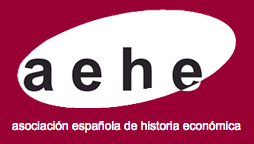Fraud in the payment of Industrial and Business tax in Spain: The case of the flour mills, 1845-1907
DOI:
https://doi.org/10.1016/j.ihe.2017.11.002Keywords:
Tax fraud, Taxes, Treasury, Flour manufacturing, Industrial policy, H25, N13, N23, N33Abstract
In this article, the hypothesis defended is that fraud in the payment of industry and business taxes in Spain exceeded 50percent and, worse still, it grew during the second half of the 19th century. This fraud was the result of tax complexity, complicity of authorities with wealthy taxpayers, and the absence of any real inspection. However, the study claims that tolerance to fraud was an instrument of industrial policy, by which the Government tolerated it so as to favour the development of certain sectors. To demonstrate this hypothesis, an analysis is made of flour manufacturing, the most widespread productive industry in the country.Downloads
Downloads
How to Cite
Issue
Section
License
Aquellos autores/as que tengan publicaciones con esta revista, aceptan los términos siguientes
- Los autores/as conservarán sus derechos de autor y garantizarán a la revista el derecho de primera publicación de su obra, el cuál estará simultáneamente sujeto a la Licencia de reconocimiento de Creative Commons Reconocimiento-No comercial-Sin obra derivada 4.0 Internacional que permite a terceros compartir la obra siempre que se indique su autor y su primera publicación esta revista, y no permite hacer uso comercial de la misma ni tampoco obras derivadas.
- Los autores/as podrán adoptar otros acuerdos de licencia no exclusiva de distribución de la versión de la obra publicada (p. ej.: depositarla en un archivo telemático institucional o publicarla en un volumen monográfico) siempre que se indique la publicación inicial en esta revista.
Plagio y fraude científico
La publicación de un trabajo que atente contra los derechos de propiedad intelectual será responsabilidad de los autores/as, que serán los que asuman los conflictos que pudieran tener lugar por razones de derechos de autor. Los conflictos más importantes pueden darse por la comisión de plagios y fraudes científicos.
Se entiende por plagio:
- Presentar el trabajo ajeno como propio.
- Adoptar palabras o ideas de otros autores sin el debido reconocimiento.
- No emplear las comillas u otro formato distintivo en una cita literal.
- Dar información incorrecta sobre la verdadera fuente de una cita.
- El parafraseo de una fuente sin mencionar la fuente.
- El parafraseo abusivo, incluso si se menciona la fuente.
Las prácticas constitutivas de fraude científico son las siguientes:
- Fabricación, falsificación u omisión de datos y plagio.
- Publicación duplicada.
- Conflictos de autoría.





